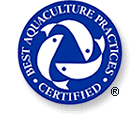The Global Aquaculture Alliance (GAA) is directing a case study to identify shrimp-farming practices that will prevent the manifestation of early mortality syndrome (EMS), also known as acute hepatopancreatic necrosis. Research methodology, designed to provide a foundation for recommendations to the aquaculture industry for better shrimp-farming practices, will be detailed during Seafood Expo North America in Boston.
The project is being supported primarily by a US $100,000 grant from ALLFISH, a World Bank public-private partnership organized by the International Coalition of Fisheries Associations. The Seafood Industry Research Fund is also supporting the project.
The crux of the case study is a comprehensive survey of shrimp farms in six countries in Asia and Latin America that consistently achieve good results, even though neighboring farms are impaired by EMS. The survey results will be entered into a database from which hypotheses will be formulated regarding the proper management of EMS, which causes the digestive organs of shrimp to deteriorate and ultimately shut down. The hypotheses will then be tested in the field.
The hope is that identifying the common denominators of proper management will lead to the adoption of better shrimp farming practices throughout the world. It is estimated that EMS, which first emerged in China in 2009, is costing the industry losses in excess of US $1 billion annually.
“In order to properly address this problem, aquaculture’s leading researchers will come together in March to design a survey of farms across the entire range of the disease to determine best practices for managing EMS,” said GAA President George Chamberlain.
The project’s first step is to establish a committee of approximately 10 international experts to analyze survey results and formulate the hypotheses for further testing. The group is currently being assembled and will convene in Vietnam later this month. A checklist for the survey will be developed to assure consistency in evaluation of pond management methods. Qualified auditors will then be dispatched to shrimp farms in China, Vietnam, Malaysia, Thailand, Mexico and India – particularly in areas greatly affected by EMS – to gather survey data.
The fourth step is to collect survey results for input into a database, which the committee will review and formulate into hypotheses. Finally, the data will be complied for a written report to be presented to the aquaculture community during the GOAL 2014 Conference, which will take place in Ho Chi Minh City (Saigon), Vietnam, October 7-10.
EMS and other topics will be addressed during GAA’s Mini-GOAL seminar on March 17, 12:45-2:15 PM, at Seafood Expo North America. The venue is the Boston Convention & Exhibition Center, Room 153AB. In addition to President Chamberlain, speakers will include Dan Lee and Peter Redmond of GAA’s Best Aquaculture Practices (BPP) certification program, Avrim Lazar of the Global Salmon Initiative, Ricardo Garcia of Camanchaca, and Scott Williams of BJ’s Wholesale Club.
Click here for more information about the seminar, or drop by GAA booth No. 481 during the Boston show.





